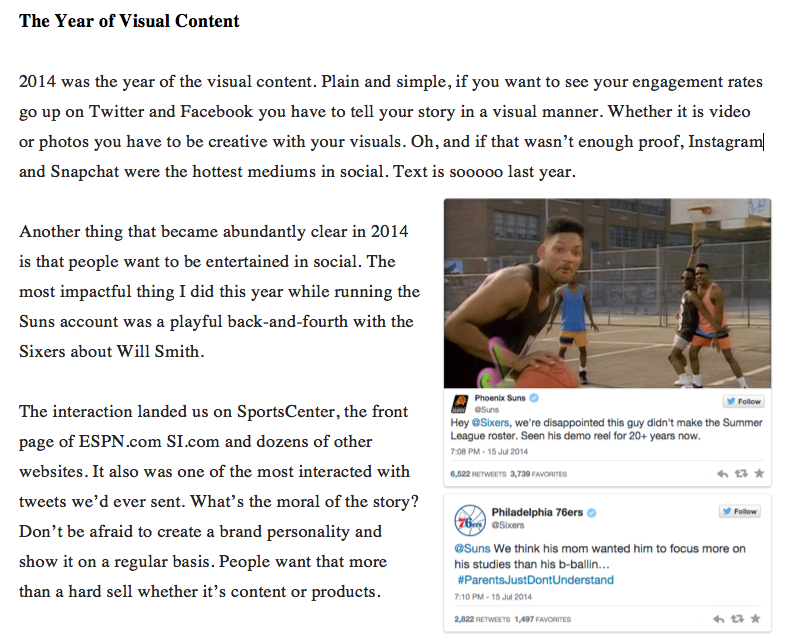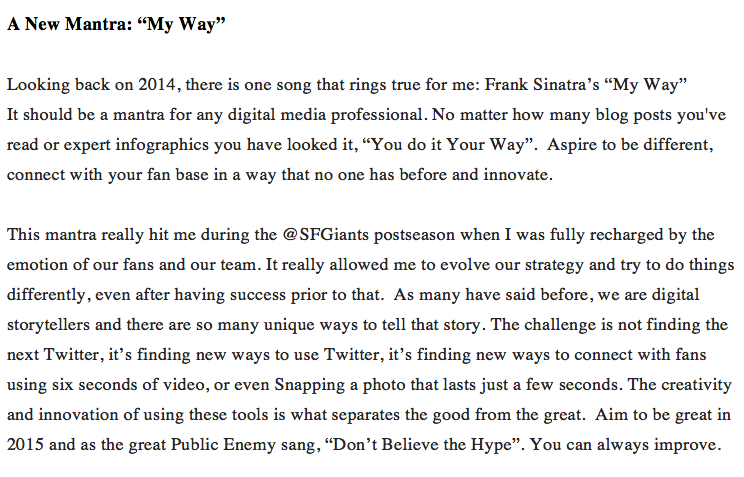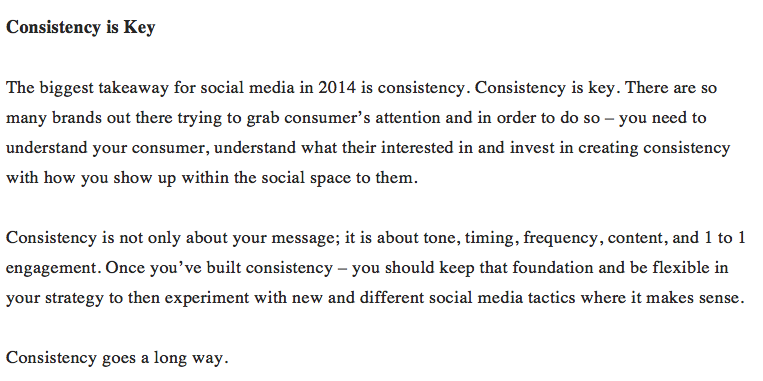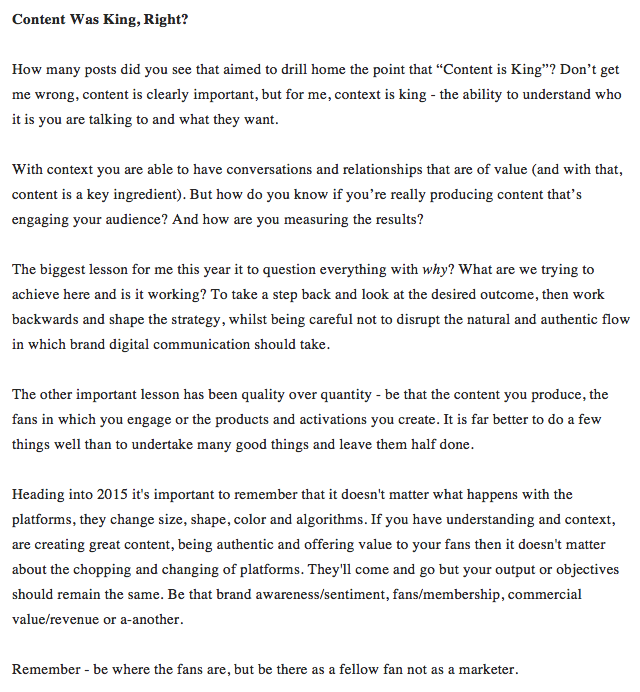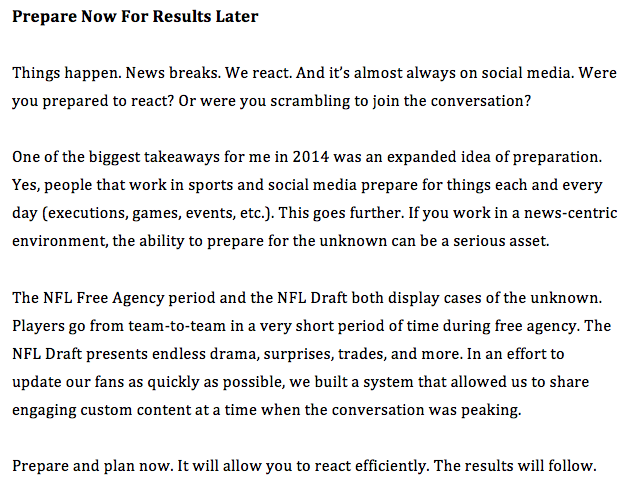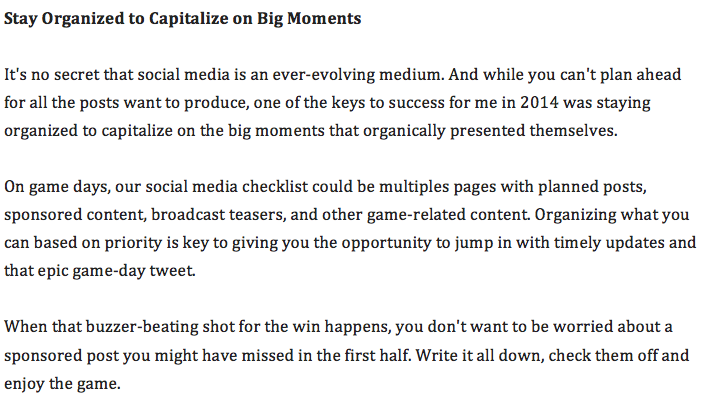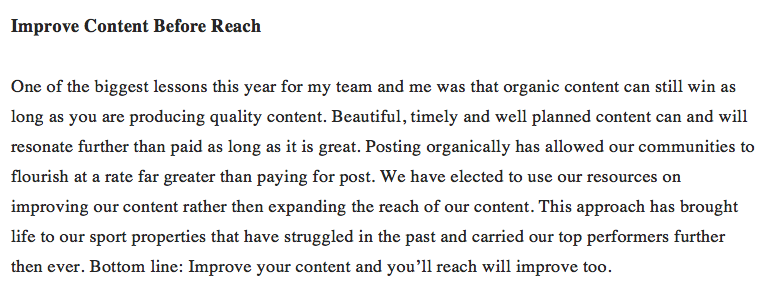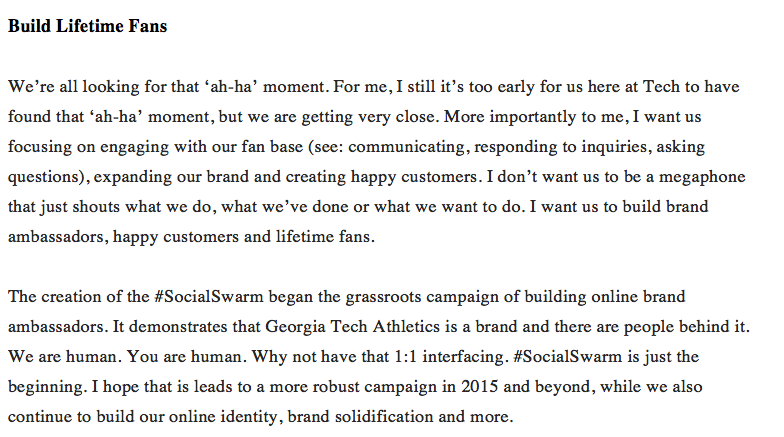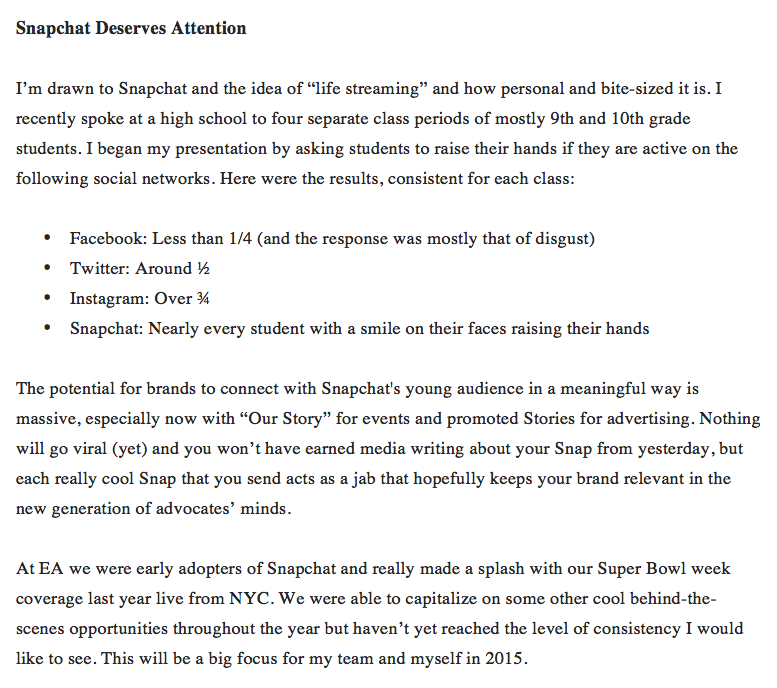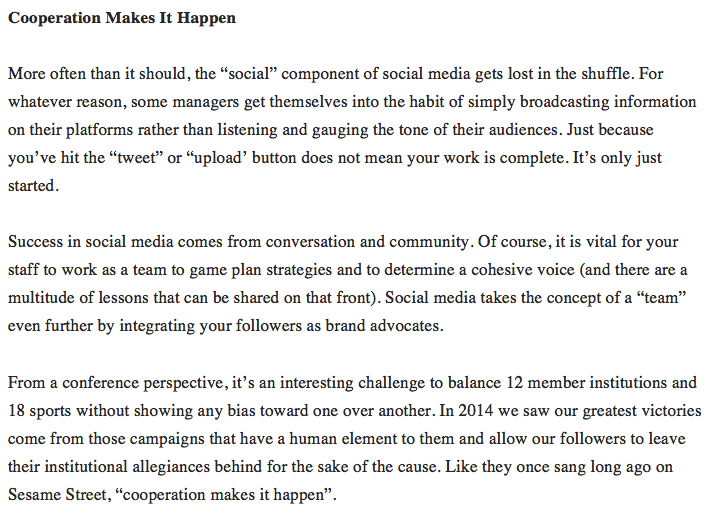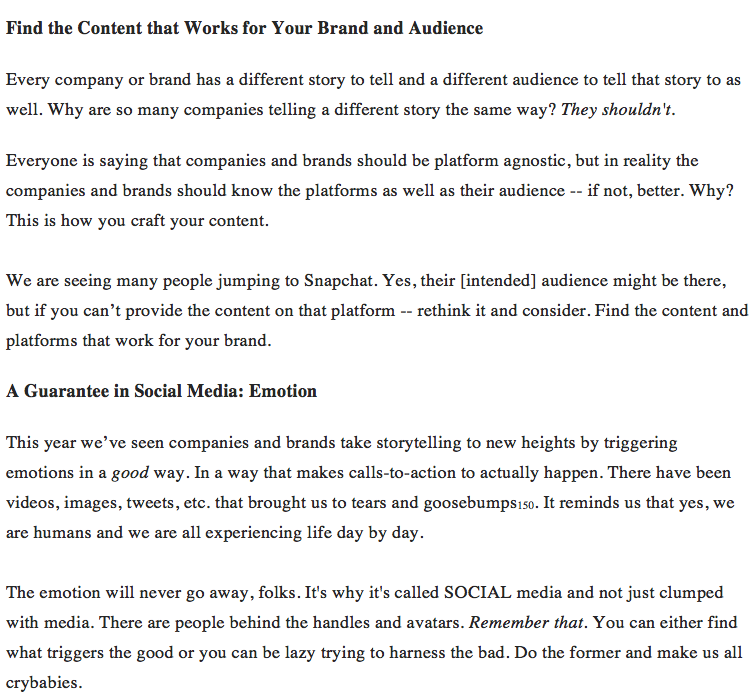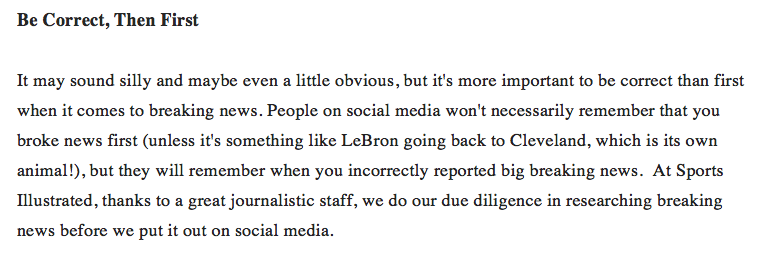As a social media manager, it’s easy to get stuck in the habit of doing and not thinking, reflecting and strategizing. We have to always be on. As 2014 comes to a close though, now is the perfect time to take a step back and reflect on what you learned this year. Take this time to pause and reflect.
- How can you take what you learned to improve in the year ahead?
- What do you want to accomplish in 2015?
- Can you answer the “why” in what you do?
Some of the best minds in sports have taken the time to share their insights from 2014. It should help you get thinking about what you have taken away. The contributors touch everything from college athletics to media to professional sports. Without further ado, here are their social media lessons learned in 2014. I’m sure there’s a thing or two that will resonate with you:
Greg Esposito, Digital Manager at Phoenix Suns
Connect: @Espo | @Suns
Bryan Srabian, Director of Digital Media at San Francisco Giants
Connect: @Srabe | @SFGiants
Lauren Gallo, Global Digital + Social Media Lead
Connect: @MissGallo
Joe Morgan, Digital Media Manager at Team Great Britain
Connect: @MrJoeMorgan | @TeamGB
Bryce Gustafson, Social Media Coordinator at NFL and
NFL Network
Connect: @brycegustafson | @NFL
Kathryn Przybyla, Social Media Coordinator at Brooklyn Nets
Connect: @KatPrz | @BrooklynNets
Chris Dion, Assistant Director of Social Media Strategy at NCAA
Connect: @ChrisMDion
Chris Yandle, Assistant AD of Communications at Georgia Tech Athletics
Connect: @ChrisYandle | @GTAthletics
Kurt Stadelman, Conversation Manager at EA Sports
Connect: @KurtStadelman | @EASports
Katie Cavendar, Assistant Commissioner of Strategic Communications at Mountain West Conference
Connect: @KatieCavender | @MountainWest
Caleb Mezzy, Social Media Strategist at 160over90
Connect: @Caleb_Mezzy | @160over90
Stefanie Gordon, Social Media Producer at Sports Illustrated
Connect: @Stefmara | @SINow
A big thanks to everyone who contributed to this post. The insights are greatly appreciated. Be sure to give all of them a follow on Twitter.
Now it’s your turn: What social media lessons did you learn in 2014? Be sure to share them below!
Thanks for reading!
